Moskovsky Victory Park is intrinsically linked to the darkest moment in St Petersburg’s history, the Siege of Leningrad. Yet despite its tragic past, the park blooms with new life and is a hugely popular place for entertainment and relaxation among St Petersburg’s residents, as well as an important site commemorating the victims and survivors of the Siege.
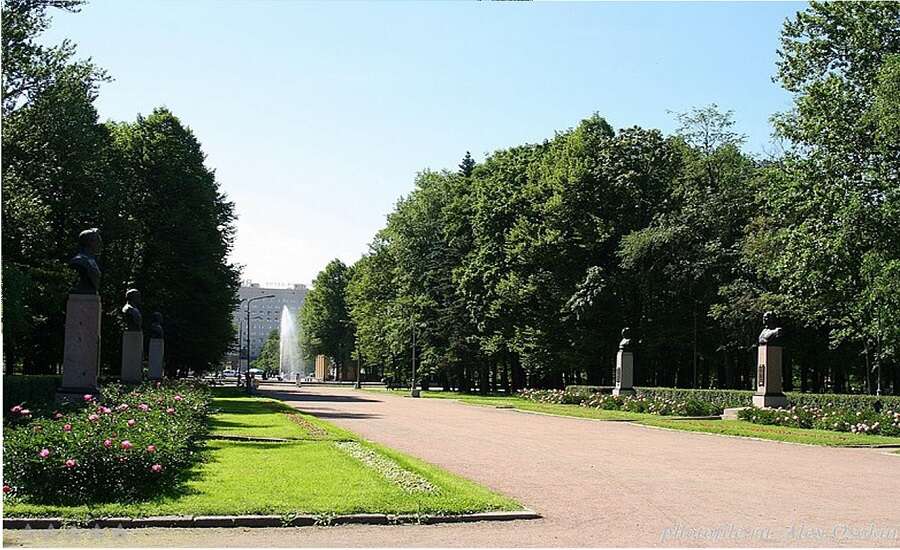
Photo from http://www.gupmpp.ru/
The Soviets’ plans for Leningrad involved moving the social and political center from the imperial heartlands of Palace Square and Nevsky Prospekt to the south of the city. Large-scale construction work began in the mid-1930s to build the Moskovsky District. The city leadership decided to create a small park of culture and recreation in the very heart of the grand new district, situated on the clay quarries of Brick Factory No.1 and just a few blocks from the House of Soviets, the center of political life in Leningrad. Moskovsky Park of Culture and Recreation was nearing completion when the Nazis invaded the USSR in June 1941.
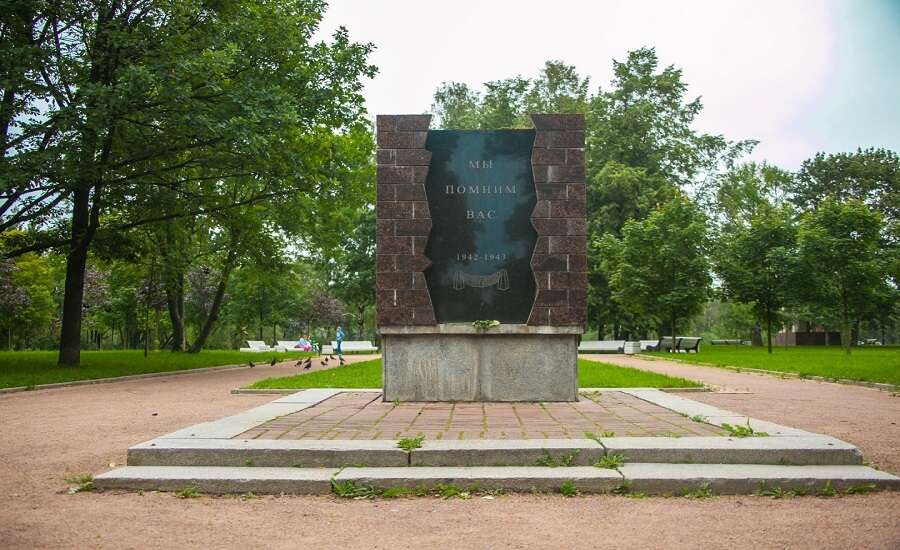
Photo from https://parkseason.ru/
The tragic history of the park began in the bitter first winter of the Siege of Leningrad in 1941-1942, when the city had run out of food and power and hundreds of thousands of people were dying. Mass graves were dug in Piskarevskoye Cemetery in the north-east of Leningrad, but space there was dwindling and people simply did not have the strength to transport bodies on foot many kilometres across the frozen city. In March 1942, the city leadership decided to use Brick Factory No.1 as a crematorium for Siege victims and soldiers fighting on the front line, which lay fewer than ten kilometres away.
After the war ended, it was decided to lay out a beautiful park – Moskovsky Victory Park – to honour the strength of Leningrad’s inhabitants during the hardest days of the Siege and to commemorate Soviet victory over Nazi Germany. On October 7th, 1945, construction began with the help of thousands of Leningraders who cleaned up the surrounding area, planted trees and drained the swampy land. The architects combined regular and landscape park designs, laid beds of blooming flowers and tree-lined alleys, and installed monuments and statues throughout the park. A summer theatre, cinema, and sports and entertainment facilities were also founded there, ushering in a new era of joy to this place of tragedy.
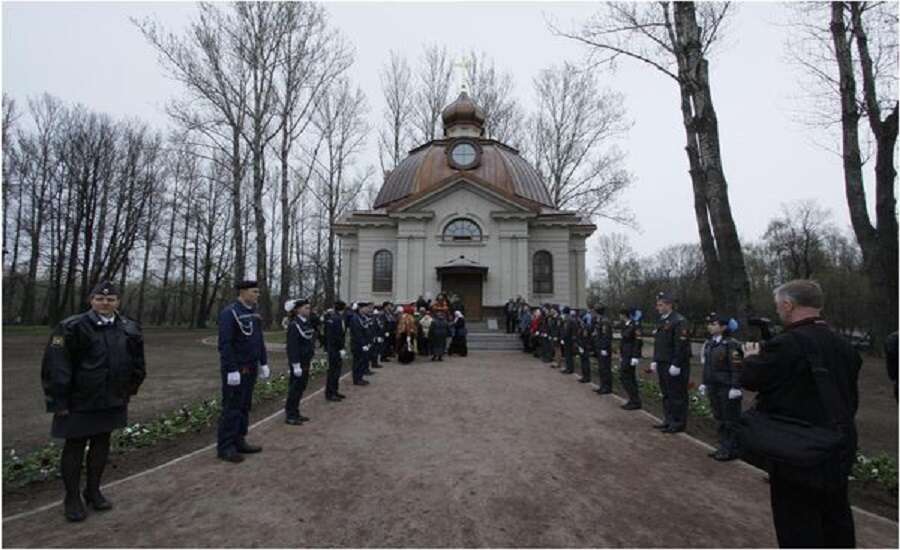
Photo from http://www.gupmpp.ru/
Did you know? As Moskovsky Victory Park was expanded into the territory of the former Brick Factory No.1, it became known as the ‘second Piskarevskoye Cemetery’. However, the mass graves were never acknowledged during Soviet times, and only in the 1990s were memorials erected, dedicated to the memory of those who lay beneath the park.
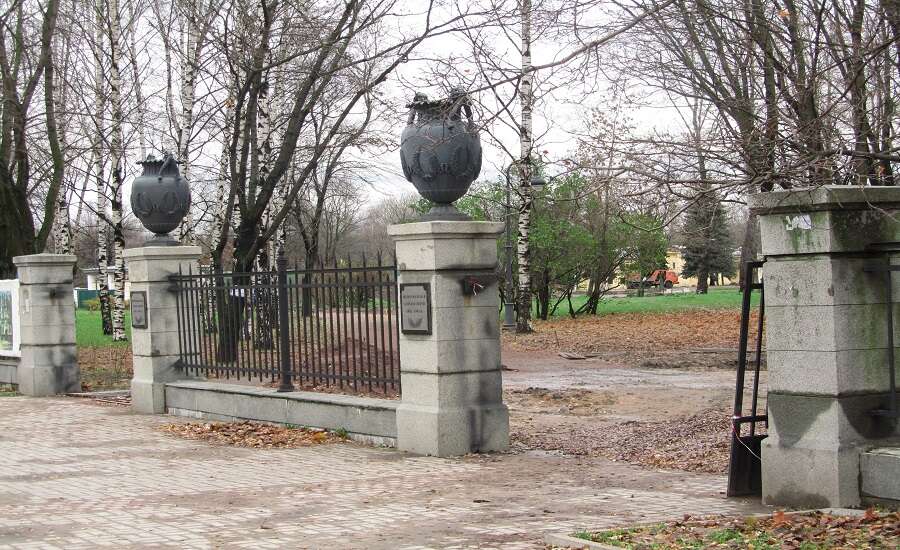
Photo from https://photo.gradpetra.net/
This kilometre-long alley is the main memorial of the park, dividing the regular and landscape sections. Monuments are dedicated to War Heroes of Leningrad and Heroes of the Soviet Union, of Socialist Labour, and of the Russian Federation. At the western end of the alley stands the 25-metre ‘Wreath of Glory’ Fountain, decorated with bay leaves (a traditional symbol of victory) and tulips (in memory of the bouquets which Leningraders presented to the victorious returning soldiers).
There are a number of ponds in the landscape section of Moskovsky Victory Park, some of which visitors can sail on. Several remain from the pre-revolutionary period including the Square Ponds, commonly known as ‘ochki’ (glasses), which belonged to a 19th-century country estate. The Admiralteysky Pond was a formerly a pit serving the crematorium, and the Fontanny (fountain) Pond was formed from one of the Brick Factory’s clay quarries. In its centre is an island with sculptures.
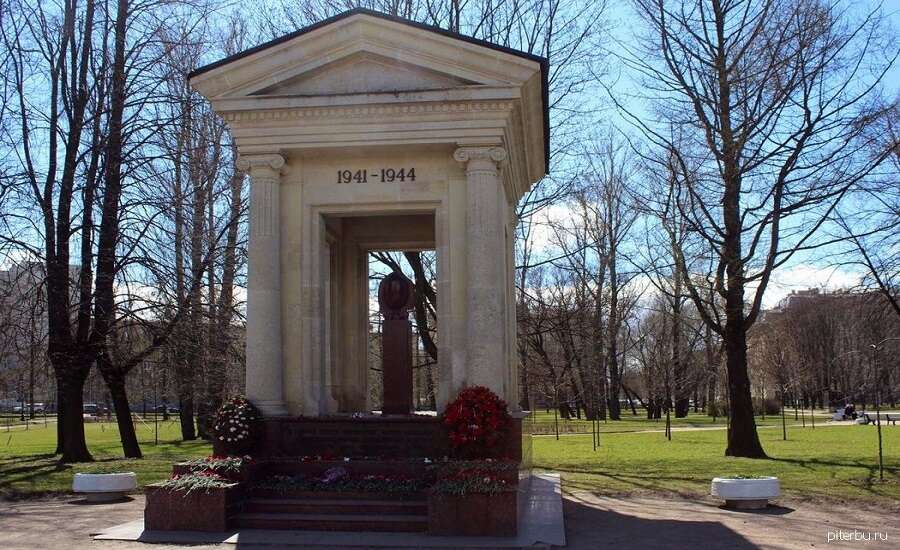
Photo from https://piterbu.ru/
There are several monuments dedicated to the Siege of Leningrad. In the south-west of the park on the site of Brick Factory No.1 stands a chapel and memorial cross to commemorate those who were cremated there.
Did you know? The cross atop the chapel is without the lower crossbar used in Orthodox Christianity, meaning that Christians of all denominations can be remembered there.
The Rotunda monument dedicated to victims and survivors of the Siege stands on a small hill on the bank of the Admiralteysky Pond; researchers from the St Petersburg Forestry Academy discovered that this hill is likely a mound of ashes from the crematorium. Nearby is an unusual monument – an original factory trolley which was retrieved from one of the park ponds in 1999 by the relatives of a Siege survivor. Bodies and ashes were transported to and from the Brick Factory on such trolleys.
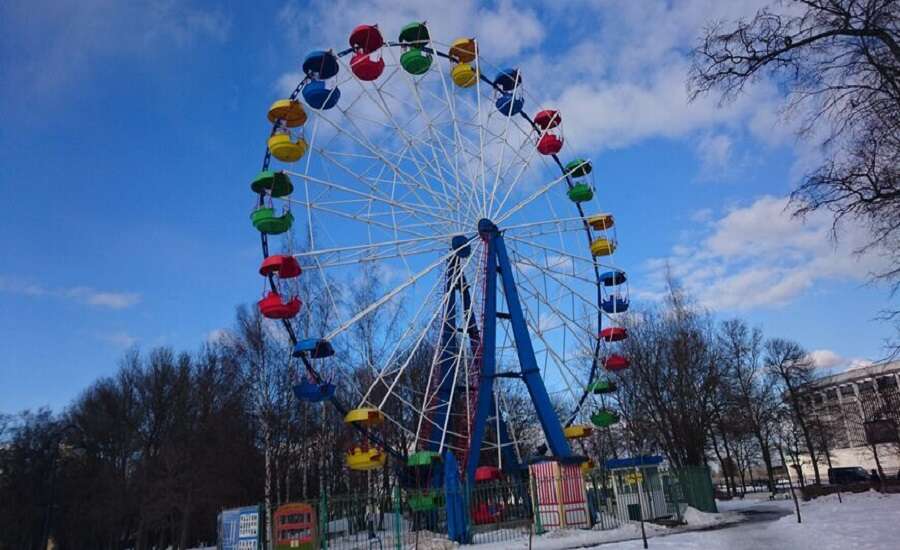
Photo from https://www.tourister.ru/
Despite its history, Moskovsky Victory Park is a place of joy and relaxation in all seasons. In summertime you can explore its rich flower gardens and verdant woodland, sail the ponds on boats or pedalos, and rent bicycles, roller-skates, tennis rackets and other sports equipment. In winter you can skate on a large ice rink or simply explore the snowy parkland. Musical and literary events are held in the park during summer, as well as festivities to celebrate national holidays such as Maslenitsa and Victory Day. In the south-eastern section is ‘Gagarin Park’, a small theme park with rides for all ages and amusement arcades.
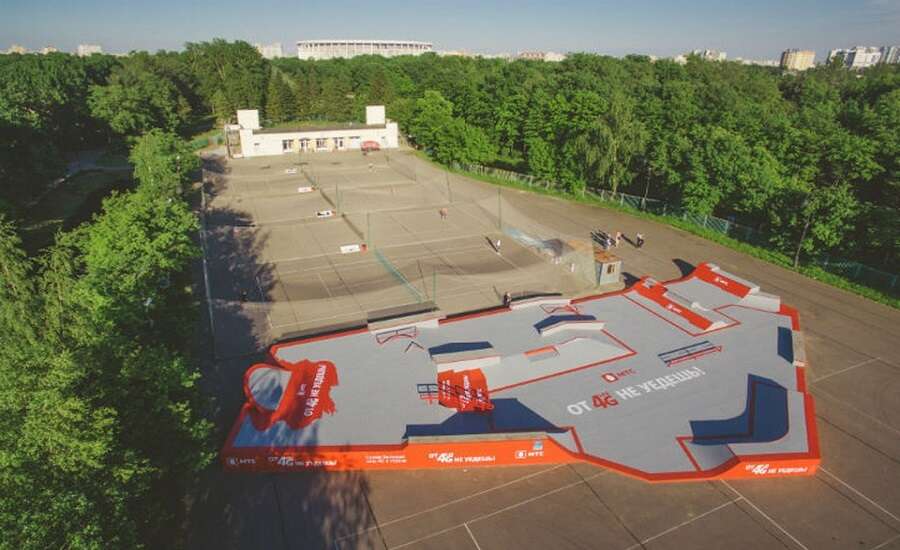
Photo from https://www.spb.kp.ru/
Did you know? In October 2020, it was announced that a branch of the Museum of the Defense and Siege of Leningrad will be opened in Moskovsky Victory Park, in the pavilion of the former Globus Cinema.
Aviator’s Park: This park was created in 1966 on the former Korpusnoy Airfield. It has winding paths through the woodland, and a lake with a sculpture of a fighter jet rising from an island in its center. It is situated 10 minutes’ walk to the west of Moskovsky Victory Park.
Soviet architecture: Moskovsky District and Moskovsky Prospekt are home to some magnificent examples of Soviet architecture. These include the monumental House of Soviets, the house on the south-western corner of Moskovsky Victory Park which is reminiscent of Stalin’s Seven Sisters, and the National Library of Russia which stands opposite the park entrance.
Chesme Church: This unique 18th-century church, with pink walls and intricate white ornamentation, turrets and towers, almost resembles an elaborate cake! It is located less than a kilometre’s walk south from Moskovsky Victory Park.
Primorsky Victory Park: Moskovsky Victory Park’s twin sister was founded on the same day on Krestovsky Island in western St Petersburg. Visitors can find verdant woodland walks, bike paths, boat rentals, and a popular beach and embankment.
Essential information for visitors
Address: Kuznetsovskaya Ulitsa, 25, St Petersburg, 196105
Website: www.gupmpp.ru
Phone: +7 812 388-08-81
Nearest metro: Park Pobedy (330m from the main entrance of the park)
Opening hours: 24/7
Join us on Facebook
We invite you to become a fan of our company on Facebook and read Russian news and travel stories. To become a fan, click here.
Join our own Russian Travel, Culture and Literature Club on Facebook. The club was created to be a place for everyone with an interest in Russia to get to know each other and share experiences, stories, pictures and advice. To join our club, please follow this link.